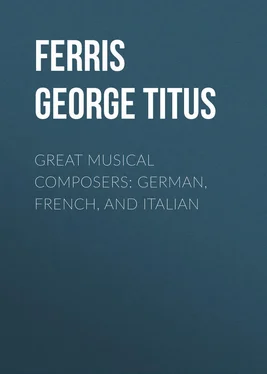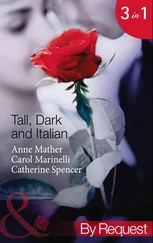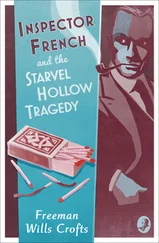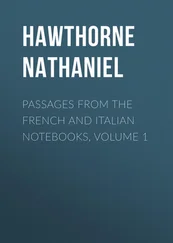George Ferris - Great Musical Composers - German, French, and Italian
Здесь есть возможность читать онлайн «George Ferris - Great Musical Composers - German, French, and Italian» — ознакомительный отрывок электронной книги совершенно бесплатно, а после прочтения отрывка купить полную версию. В некоторых случаях можно слушать аудио, скачать через торрент в формате fb2 и присутствует краткое содержание. Жанр: music_dancing, foreign_antique, foreign_prose, на английском языке. Описание произведения, (предисловие) а так же отзывы посетителей доступны на портале библиотеки ЛибКат.
- Название:Great Musical Composers: German, French, and Italian
- Автор:
- Жанр:
- Год:неизвестен
- ISBN:нет данных
- Рейтинг книги:3 / 5. Голосов: 1
-
Избранное:Добавить в избранное
- Отзывы:
-
Ваша оценка:
- 60
- 1
- 2
- 3
- 4
- 5
Great Musical Composers: German, French, and Italian: краткое содержание, описание и аннотация
Предлагаем к чтению аннотацию, описание, краткое содержание или предисловие (зависит от того, что написал сам автор книги «Great Musical Composers: German, French, and Italian»). Если вы не нашли необходимую информацию о книге — напишите в комментариях, мы постараемся отыскать её.
Great Musical Composers: German, French, and Italian — читать онлайн ознакомительный отрывок
Ниже представлен текст книги, разбитый по страницам. Система сохранения места последней прочитанной страницы, позволяет с удобством читать онлайн бесплатно книгу «Great Musical Composers: German, French, and Italian», без необходимости каждый раз заново искать на чём Вы остановились. Поставьте закладку, и сможете в любой момент перейти на страницу, на которой закончили чтение.
Интервал:
Закладка:
Then came the fulness of the Renaissance, quickening dead forms into new life, laying its vivifying touch on the new-born art, music, and making it its nursling. At first the change was hardly perceptible. It was church music out of church, fine, stately, what may with seeming paradox be called statuesque, which came to bear the name of L’Opera , signifying The Work : – but, though born to a heritage of good aims, possessed of very inadequate means for their fulfilment. Once liberated from its presumed function of expressing religious feeling, and thus subjected to other impelling forces, music could not long remain in the old forms. It began to feel its way into new channels, and in the form of the opera became a national institution. Its growth at first was weak and faulty; but finally it developed into a perfect art. It was as the novice, who, freed from the sanctity of the convent with its calm lights and shadows, enters at last the portals of the life of the world – a varied world full of turmoil, passion, and strife. A greater world, after all, than that quitted, because composed of so many possibilities in so many directions, and comprising the sufferings, the joys, the aspirations of such innumerably differentiated beings; a world wherein the novice learns to widen her sympathies, to feel with and for the people, and to express for them the never-ceasing craving for something beyond the fleeting moment. At first, therefore, the stately art and the musical needs of the people were dissimilar and apart; but little by little each gave to and took from the other, till at length, out of the marriage of these elementaries, a third arose to become the expression of the life of the people, partaking in likeness of both, having lost certain qualities, having gained many more, becoming richer, broader, more eclectic – in short, developing into the more fitting expression of the manifold aspirations of modern days, when life is varied and intense, and the mind gropes blindly in every direction.
This development is traceable in all art, and in the sphere of music it is most manifest in the opera. Like all great movements the opera began humbly. Towards the end of the sixteenth century a number of amateurs in Florence, dissatisfied with the polyphonic school of music, combined “to revive the musical declamation of the Greeks,” to wed poetry and music – so long dissevered – to make the music follow the inflexion of the voice and the sense of the words. The first opera was “Il Conte Ugolino,” composed by Vicenzio Galileo – father of the famous astronomer – and it was followed by various others, the titles of which need not here be recorded. At first, such performances took place in the palaces of nobles on grand occasions, when frequently both performers and musicians were of high rank. At length, however, in 1637 a famous theorbo player, Benedetto Farrari, and Francesco Manetti, the composer, opened in Venice an opera-house at their own risk, and a little later brought out with great success “Le nozzi di Peleo e di Telide” by Cavalli, a disciple of Monteverde, and it was henceforth that the opera became, as we have said, a national institution. Schools for singing were opened in Rome, Naples, and Venice – the science of music made rapid strides – instruments for orchestral purposes naturally likewise improved in quality and in variety; and the opera developed continuously in breadth of treatment and form in the hands of Scarlatti, Leo, Jommelli, and Cimarosa.
About the beginning of the eighteenth century a rival to the serious opera sprang up in Naples – the comic opera, the direct offspring of the people, and of lower artistic standing. But as the serious opera became more stately, more scientific, more purely formal, less human, less the expression of direct feeling, cultivated more for art’s sake solely, the comic opera throve on the very qualities that its elder sister rejected, till at length the greatest musicians of the day, Pergolesi, Cimarosa, Mozart, wrote their masterpieces for it. Ultimately the two were fused into one, that is, into the modern Italian opera. The comic opera, as we now understand it, is of French origin.
From Italy the opera found its way into other countries with varying results. In England it took early root, and assimilated itself with the earlier masques which were played at Whitehall and at Inns of Court. In the early productions in this country, however, the music was merely incidental. During the Commonwealth, an opera entitled “The Siege of Rhodes,” composed by Dr. Charles Colman, Captain Henry Cook, Henry Lawes, and George Hudson, was performed in 1655, under the express license of Cromwell. Purcell seems, however, to have been the first to see the possibility of a national English opera; – his music to Dryden’s “King Arthur,” and to the “Indian Queen,” is considered very beautiful; “his recitative was as rhetorically perfect as Lulli’s, but infinitely more natural, and frequently impassioned to the last degree; his airs are not in the Italian form, but breathe rather the spirit of unfettered natural melody, and stand forth as models of refinement and freedom.” “The Beggar’s Opera,” set to music by Dr. Pepusch, and Dr. Arne’s “Artaxerxes,” a translation from Metastasia’s libretto, adapted to melodious music, were deservedly popular, and long retained a place on the stage. Nevertheless, when the Italian opera became an institution in England, the national opera made no further progress. During the last few years the former seems to have practically died out in England, and it remains to be seen in what form the English opera will revive and flourish once more as a national product. We have good promise in the works of such musicians as Balfe, Wallace, Sterndale Bennet, Sir G. A. Macfarren, Dr. A. C. Mackenzie, Sir Arthur Sullivan, Mr. C. V. Stanford, and others.
The end of the sixteenth and end of the seventeenth centuries form what has been called “the golden age of English music – aye for all musical Europe – of the madrigal. Nowhere was the cultivation of that noble form of pure vocal music, whether in composition or in performance, followed with more zeal or success than in England.” The Hon. Roger North, Attorney-General to James II., in his Memories of Musick , speaks thus of the state of music in the first half of the seventeenth century – “Afterwards these (Italian fantazias ) were imitated by the English, who, working more elaborately, improved upon their patterne, which gave occasion to an observation, that in vocall the Italians, and in instrumental music the English excelled.” Again he alludes to “those authors whose performance gained the nation the credit in excelling the Italians in all but vocall.” In instrumental music, then, in the madrigal, the cantata, and in ecclesiastical music, England prospered. Among her most important composers were John Dowland, Ford, Henry Lawes, John Jenkens, Pelham Humphreys, Wise, Blow, Henry Purcell – great in secular and ecclesiastical works, in instrumental and in vocal – Croft and Weldon; all were predecessors of Handel, who, though one of the greatest of German composers, lived nearly fifty years in England, composed several operas and all his famous oratorios for England, and is therefore not unjustifiably added to the list of English composers.
The opera was first introduced into France by Cardinal Mazarin early in the seventeenth century, but the lyrical drama owes its origin in that country to Lulli, who also introduced into it the ballet, which was a favourite pastime of the young king Louis XIV. The ballet has since become an integral part of the French and also of the later Italian operas. It was Lulli, again, who extended the “meagre prelude” of the Italian opera into the overture as we now know it. But as the rise and progress of the French opera is fully portrayed in the following musical sketches, it is needless to trace it further here.
Читать дальшеИнтервал:
Закладка:
Похожие книги на «Great Musical Composers: German, French, and Italian»
Представляем Вашему вниманию похожие книги на «Great Musical Composers: German, French, and Italian» списком для выбора. Мы отобрали схожую по названию и смыслу литературу в надежде предоставить читателям больше вариантов отыскать новые, интересные, ещё непрочитанные произведения.
Обсуждение, отзывы о книге «Great Musical Composers: German, French, and Italian» и просто собственные мнения читателей. Оставьте ваши комментарии, напишите, что Вы думаете о произведении, его смысле или главных героях. Укажите что конкретно понравилось, а что нет, и почему Вы так считаете.












